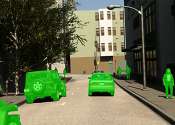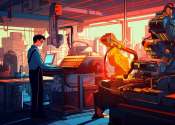Tiny, cheap solution for quantum-secure encryption
It's fairly reasonable to assume that an encrypted email can't be seen by prying eyes. That's because in order to break through most of the encryption systems we use on a day-to-day basis, unless you are the intended recipient, ...
Mar 22, 2022
0
243









